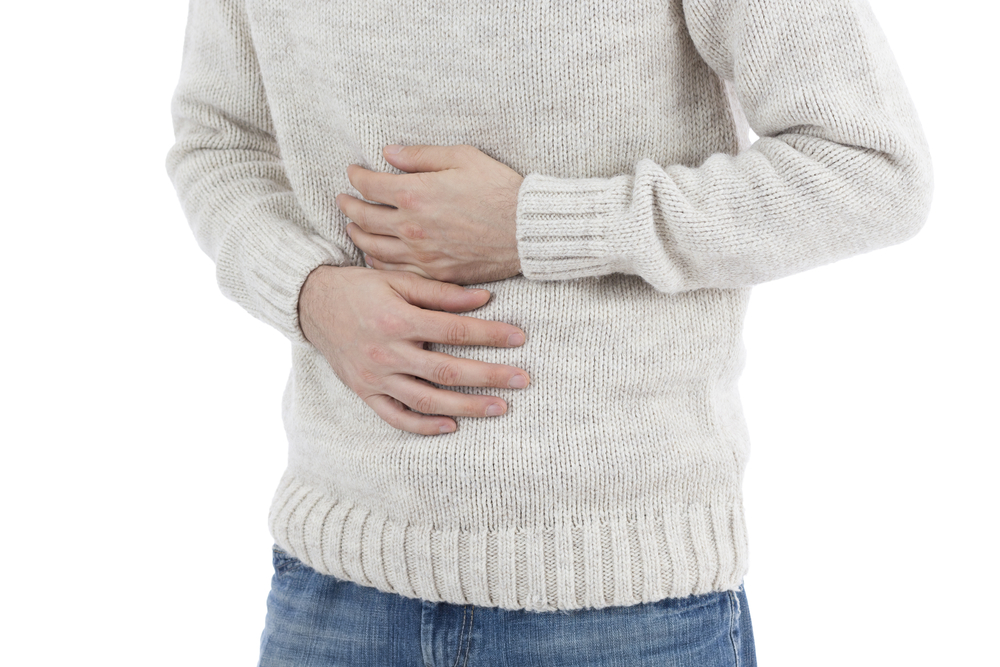
What is it?
Irritable bowel syndrome (IBS) is a chronic, relapsing and often life-long disorder of the digestive system. It consists of abdominal pain or discomfort that is associated with defaecation and/or accompanied by a change in stool form and frequency (constipation or diarrhoea, or both). Other common symptoms include altered stool passage (straining, urgency, incomplete emptying of bowels); abdominal bloating, passing mucus, lethargy and low backache.
IBS most often affects people between 16 and 30 years and is at least twice as common in women as in men. It is the most common functional disorder, which means that the symptoms are absolutely genuine but are not due to an identifiable disease process or detectable abnormality on investigation. It is thought that IBS affects between 10% and 20% of the general population.
What causes it?
The short answer is that nobody knows but there are a few theories. IBS may follow an infection or an episode of food poisoning in about 20% of cases (so-called post-infective IBS) and it is thought therefore that this “insult” may change gut bacteria (microbiota) or alter nerve pathways in the gut. IBS may be worse at times of stress by altering nerve transmitter (serotonin) levels or lowering the threshold at which individuals are aware of symptoms.
How is IBS diagnosed?
IBS is diagnosed in individuals with at least 6 months’ history of relevant symptoms, in the absence of any worrying or “red flag” symptoms and with normal screening blood and stool test results. Coeliac disease should be excluded using a screening blood test, and in those with diarrhoea a faecal calprotectin level should not be raised. If an abnormality is detected then the diagnosis should be reconsidered. Invasive tests such as endoscopy or X- rays are not required to make the diagnosis, but may be requested if doubt exists.
How is it treated?
There are many different treatment options that depend upon the predominant symptom and an individual’s preference. I will discuss these briefly.
Diet
Many people with diarrhoea and abdominal bloating will respond to a low FODMAP (Fermentable, Oligosaccharides, Disaccharides, Monosaccharides And Polyols) diet or restricting the amount of gluten (non-coeliac gluten sensitivity IBS) or dairy products.
Drugs
Certain drugs may be used to treat pain (e.g. mebeverine, alverine, hyoscine, peppermint oil), to relieve constipation (e.g. lactulose), or decrease diarrhoea (e.g. loperamide). In subjects with more severe IBS with constipation, linaclotide may be tried. Citalopram, that affects serotonin levels, is particularly effective if pain and bloating are the main symptoms.
Probiotic
Treatment with a probiotic such as Symprove may help individuals with IBS but may take many weeks to do so.
Antibiotics
Rifaximin (550mg three times daily for 2 weeks) led to a marked improvement in bloating, abdominal pain, and loose or watery stools compared with placebo (a control substance with no therapeutic effect). The most likely mode of action of rifaximin is to reduce the overall amount of bacteria and their effects.
Those not keen on using drugs, or those who fail to respond to dietary measures, may respond to cognitive therapy or hypnotherapy. According to NICE, the use of acupuncture and reflexology should not be encouraged for the treatment of IBS.
Further information about IBS may be found at www.westkentgastro.com
